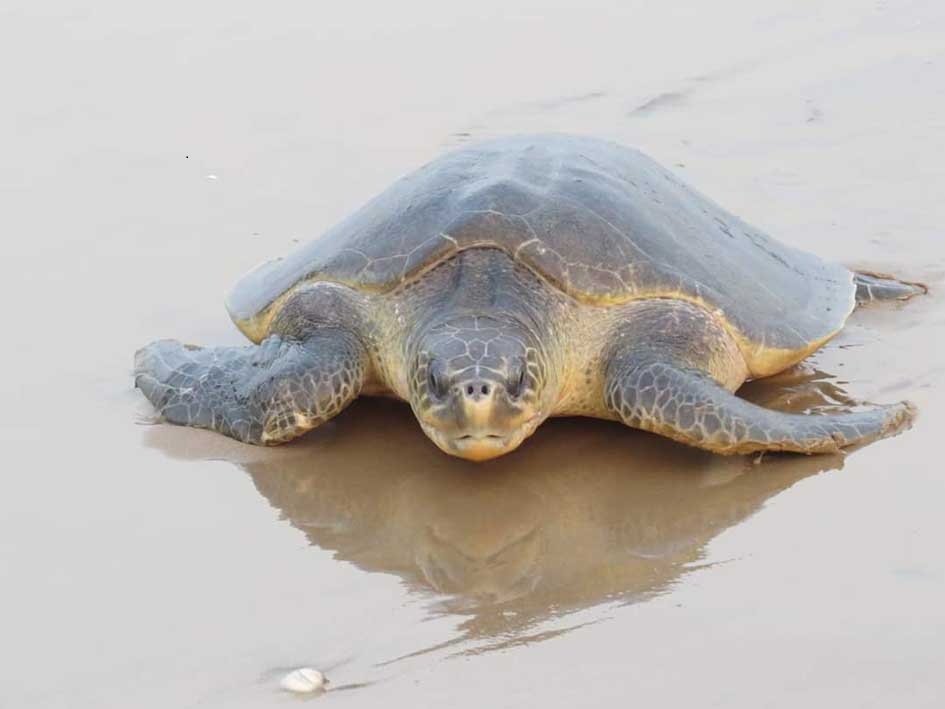Ganjam: With only a month left for the start of the mating season of the rare Olive Ridley turtles on Rushikulya river mouth here in Ganjam district, it is feared that regular ingress of tidal waves and large scale erosion of the sea beach might affect the process.
A report said that environmentalists claim that the rare turtles travel thousands of miles across the sea to come here for mating and engage in subsequent mass nesting, which starts from December. They engage in mass nesting on the sea beach from January after the wind starts blowing southward, they said.
Environmentalist suspect that the beach erosion might made it difficult for the turtles to climb on the shores and come up on the beach for their annual mating and mass nesting programme.
Forest department officials and various voluntary outfits have undertaken efforts to clean up the beach ahead of the mating and mass nesting of the sea turtles. However, it is apprehended that regular ingress of tidal waves and erosion of the sea beach might affect the process, they said.
The tidal waves were seen crossing the shores from Gokharkuda to Prayagi and in Aryapalli in south under the Ganjam block, resulting in erosion of the sea beach. As a result, the Rushikulya sea beach is getting eroded day by day.
Moreover, the sea beach from Rushikulya extending up to Bateshwar Shiva shrine is slowly getting submerged in the sea. The massive erosion of the sea beach had affected the mass nesting of the turtles last year. As a result, the number of turtles joining for mass nesting decreased last year.
The local fishermen claimed that the tidal wave ingress and sea erosion has started from 2007-2008 and the situation has been worsening each year.
When contacted, Somanath Mallick, divisional forest officer (DFO) of Rambha forest division, confirmed the development stating that there is no alternative to nature’s fury. He, however, said that the Forest department has put up six camps for the safety and protection of the visiting sea turtles. Each camp is manned by two Forest department officials, while three artificial hatcheries have been set up for the purpose, he said.
